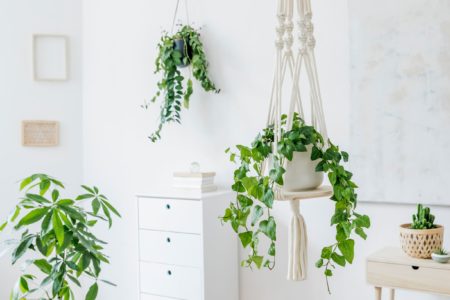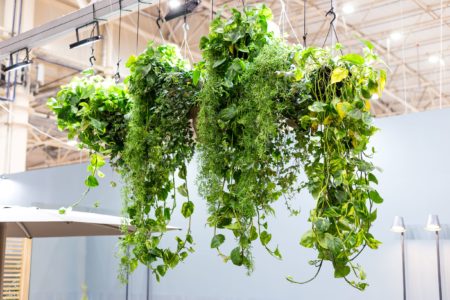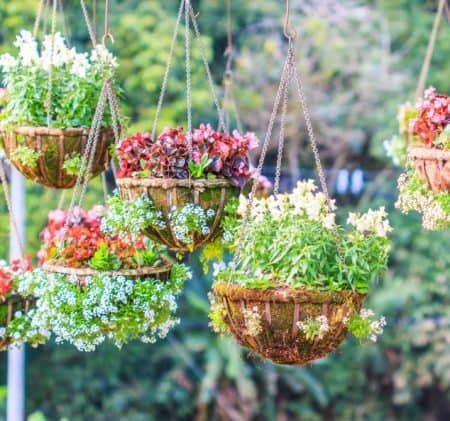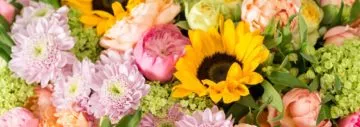When the flowers and plants of spring start to bloom, there’s nothing better than going for a walk in a garden and taking in all of their glorious freshness and bountifulness. Well, now you bring a little bit of that garden goodness inside your home as well as hanging baskets. Here at Beneva, we love all things green and believe the health benefits of plants should be enjoyed inside as well as outside. Read on for a few tips on “greening” up your living space with hanging baskets

Why Have Hanging Baskets?
Either indoors or outdoors, hanging baskets have a dramatic flair to them that livens up any space. With the assortment of the different types of plants and colors, you can consider your backyard or your living room an empty canvas that you can decorate with the colorful world of plants. Not to mention, hanging plants not only draws your eye upwards to where you not likely to see plants, but they also don’t take up any floor space so they can go practically anywhere.

Which Plants Work Best for Inside Hanging Baskets?
Whether your hanging plant is indoors or outdoors, the first thing you must determine is whether it will be hanging in a sunny or shady spot. The air inside is typically drier, so for low-maintenance hanging plants, ones which do require constant watering might be good, such as succulents. Otherwise, choose any plant you like just set a schedule and be diligent about keep them well watered. A few popular plants that do well inside are Garden Verbena, Boston Fer, Spider Plant, English Ivy, and String of Hearts.

How to Water Your Indoor Hanging Baskets
Watering indoor plants can be messy, so make sure you have a long-neck watering can and a step stool. Most hanging baskets require a pot with drainage holes. To catch the excess water drainage, either a drip tray or a second pot to catch the water is required. Other options for watering hanging plants is to water them once a week in a sink basin or shower or add a few ice cubes to them throughout the week. Find a method that works best for you to ensure your hanging plants stay properly nourished so they can thrive.

How to Care for Your Indoor Hanging Baskets
Some hanging plants may need to be repotted with better soil when you first get them, most, however, will need to be fertilized on a regular basis. Since hanging plants are hanging in the air and are not on the ground, they tend to dry out much more than normal. Therefore, fertilizing and watering them on a regular schedule is essential. Pinching off dead leaves and trimming plants back can also keep them looking fresh and healthy.
Keep these tips in mind and before you know it, you will have a lush, thriving indoor garden of hanging plants in your home.
For more great hanging baskets, look here.


